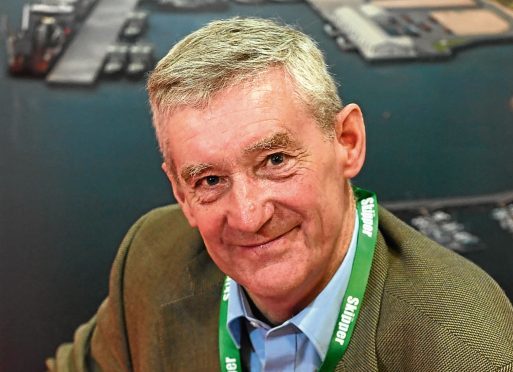Scottish fishers could emulate the Norwegians by securing twice as big a share of the catch in home waters after Brexit.
That was the message yesterday from Scottish Conservative MSP Peter Chapman, the shadow secretary for rural economy and connectivity.
He pointed out that Scottish boats currently account for only about 40% of the catch in the Scottish part of the UK exclusive economic zone (EEZ) but boats in Norway take an 85% share of the catch in their waters.
Mr Chapman used the well-worn phrase “sea of opportunity” to describe what he and industry chiefs say is in store for the Scottish fleet once the UK quits the EU.
He was speaking following a meeting of the rural economy and connectivity committee at Holyrood, where he challenged Fishing Minister Fergus Ewing to tackle a “huge discrepancy” in catch for local boats.
In response, Mr Ewing said the situation was “complex” and warned against over-fishing of UK waters.
Mr Chapman, a north-east region MSP, said: “At the moment, there is a huge discrepancy between the share of the catch for Scottish boats in our own waters and the percentage enjoyed by the Norwegian fleet in their part of the North Sea.
“The difference is that we are still in the Common Fisheries Policy, while Norway is an independent coastal state. The same is true of Iceland, where I understand local boats have a 90% share of the catch in their own waters.”
Earlier this year, a study by the University of the Highlands and Islands’ NAFC Marine Centre in Shetland found that boats from other EU countries caught 58% of the fish and shellfish landed from UK waters between 2012 and 2014.
Mr Chapman said: “The figures speak for themselves, and it is clear there is a huge sea of opportunity for our fishermen post-Brexit.
“Nobody is saying that boats from other countries won’t be able to fish in our waters, but the crucial element is that we will control how much they can fish.
“Any suggestion of over-fishing, or that our stocks will be decimated is insulting to the intelligence of Scottish fishermen, who have worked hard to ensure we have sustainable stocks in the North Sea.” He said there was a huge opportunity after Brexit to “revitalise” coastal communities, and urged the Scottish Government to plan now to “support the sector, both offshore and onshore in terms of infrastructure for landing and processing”.
Mr Ewing was not immediately available for comment.
